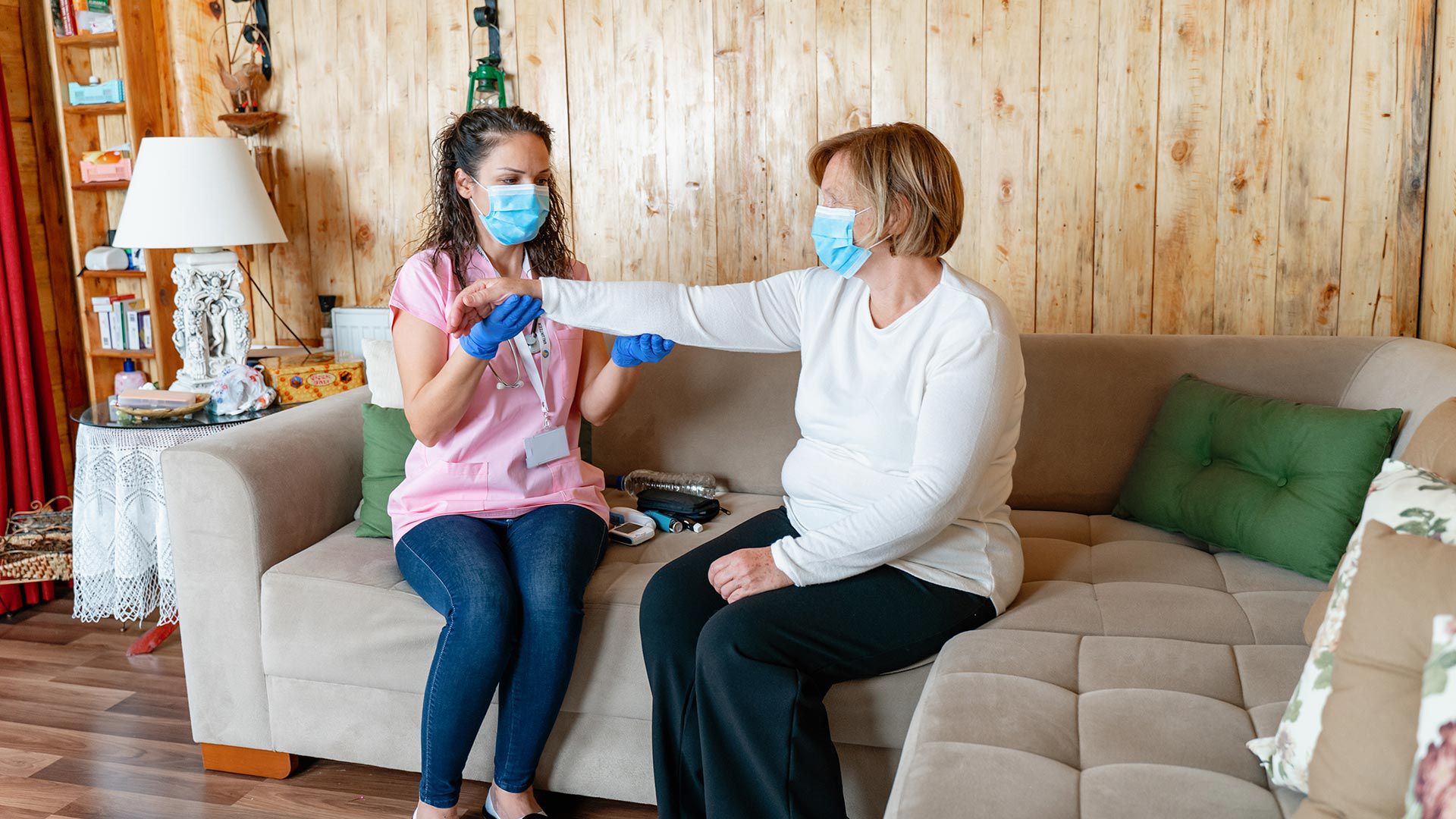Due to the development of diabetes, sugar accumulates in the bloodstream of the human body and does not reach the cells that need it as an energy source. In the world, there are more than 422 million people with this disease, and there is a risk that its incidence will increase even more. A new study in the UK revealed that people with type 2 diabetes suffer health problems in middle age five years earlier than people who do not have the disease.
The research work was carried out by scientists from the University of Cambridge, in the United Kingdom, and has not yet undergone peer review. It was also found that people with type 2 diabetes are at increased risk of 57 other conditions, such as cancer, kidney and neurological diseases.
Overweight or obesity, sedentary lifestyle, age, cholesterol and high blood pressure levels, and family history of diabetes were all known to be risk factors that increase a person's likelihood of developing diabetes. Researchers at the University of Cambridge sought to investigate the true magnitude of the risk posed by type 2 diabetes to the development of other conditions.

They conducted the most comprehensive observational study on health in midlife. People with and without type 2 diabetes participated. And they found that the condition was related to a higher incidence of 57 long-term illnesses. On average, people who had the disease had these health problems up to five years earlier than those who did not.
After analyzing the data, the scientists considered the results to be harsh and alarming and presented them at the Diabetes Professional conference in the United Kingdom. They stressed the urgent need to reduce the risk of more people developing type 2 diabetes in the future.
To do the job, we examined the data of 3 million people from the UK Biobank and GPs registries, as well as 116 common illnesses in middle age. People with type 2 diabetes had a higher risk of 57 of the diseases, including a 9% higher risk of cancer.
They also found these results: people with diabetes were 5.2 times more likely to suffer from end-stage kidney disease, 4.4 times more likely to suffer from liver cancer, and 3.2 times more likely to suffer from macular degeneration. In terms of circulatory conditions, people with diabetes were at higher risk of developing 23 of the 31 problems.

Type 2 diabetes was associated with an increased risk of ill health in all 11 health categories, with a 2.6 times higher risk of neurological problems, a 2.3 times greater risk of eye problems, a 1.9 times greater risk of digestive problems and a 1.8 times greater risk of poor mental health.
The study focused on people over 30 years of age. Experts found that the highest risks occurred when people under 50 were diagnosed with type 2 diabetes.
“This study illustrates in alarming detail the unacceptable prevalence of ill health in middle-aged people with type 2 diabetes, and is a stark reminder of the widespread and serious long-term effects of diabetes on the body,” said Dr. Elizabeth Robertson, who is director of research for Diabetes UK.
“That's why it's so important that people at higher risk of type 2 diabetes receive support to reduce their risk, and that those living with the disease have ongoing access to routine care and support to manage it well and prevent or delay complications,” Robertson said.
Meanwhile, Dr. Luanluan Sun, who co-led the research in her previous role as clinical epidemiologist at the University of Cambridge, said that the work showed that preventing and delaying the onset of type 2 diabetes was “essential” to reducing the likelihood of ill health in middle age.
For Dr. Silvia Lapertosa, president of the Argentine Diabetes Society, the results of the study in the United Kingdom correspond to data from the atlas carried out by the International Diabetes Federation. “Diabetes is associated with other disorders. Therefore, we must raise awareness among the population so that prevention is worked on since childhood and that they access and adhere to treatment when diabetes is diagnosed,” he told Infobae.

The research is released after data from the National Health Service's Diabetes Prevention Program found that participating in the nine-month preventive program reduces the risk of type 2 diabetes by more than one-third.
One of the concerns is that the rate of obesity is increasing in the world. It is one of the main factors of type 2 diabetes, accounting for between 80% and 85% of the risk of suffering from this disease.
It has been estimated that in England, two million people are at high risk of type 2 diabetes, a disease that can be largely prevented by lifestyle changes. Choices can be made that help prevent diabetes, according to the Mayo Clinic in the United States.
One of the recommendations is to eat healthy foods. “Choose high-fiber, low-fat, low-calorie foods. Focus on fruits, vegetables, and whole grains. Try to get him to eat a variety of foods so as not to get bored,” advise the experts of the Mayo Clinic.
It is also advisable to do more physical activity: you have to do at least 30 minutes of moderate aerobic activity most days of the week, or about 150 minutes a week. The other key is to lose excess weight. If you are overweight, losing even 7% of your body weight can reduce the risk of diabetes, experts say.

Last year, the US Task Force recommended screening for prediabetes and diabetes in adults aged 35-70 who are overweight or obese. He pointed out that after testing, doctors should offer or refer people with prediabetes to preventive interventions.
“Doctors can prevent serious health complications by screening adults who are overweight or obese for prediabetes and diabetes,” she said. Chien-Wen Tseng, member of the expert panel in the United States and director of research in the Department of Family Medicine and Community Health at the University of Hawaii. “With proper screening, diabetes can be detected and treated earlier to improve overall health,” he said in a statement. If the result of the blood glucose analysis gives normal, it should be repeated every 3 years.
On the other hand, if the checkup shows that a person has prediabetes, the person must adhere to access effective preventive interventions that can prevent or delay the development of diabetes. Lifestyle changes, such as adjustments in diet and physical activity, are effective in helping to prevent diabetes and also improve weight, blood pressure and cholesterol levels. Metformin, a diabetes medicine, is also an effective intervention that can prevent or delay diabetes, but it has fewer overall health benefits than the lifestyle changes that a person with altered blood sugar levels must make.
KEEP READING:
Últimas Noticias
Debanhi Escobar: they secured the motel where she was found lifeless in a cistern
Members of the Specialized Prosecutor's Office in Nuevo León secured the Nueva Castilla Motel as part of the investigations into the case

The oldest person in the world died at the age of 119
Kane Tanaka lived in Japan. She was born six months earlier than George Orwell, the same year that the Wright brothers first flew, and Marie Curie became the first woman to win a Nobel Prize

Macabre find in CDMX: they left a body bagged and tied in a taxi
The body was left in the back seats of the car. It was covered with black bags and tied with industrial tape
The eagles of America will face Manchester City in a duel of legends. Here are the details
The top Mexican football champion will play a match with Pep Guardiola's squad in the Lone Star Cup

Why is it good to bring dogs out to know the world when they are puppies
A so-called protection against the spread of diseases threatens the integral development of dogs




